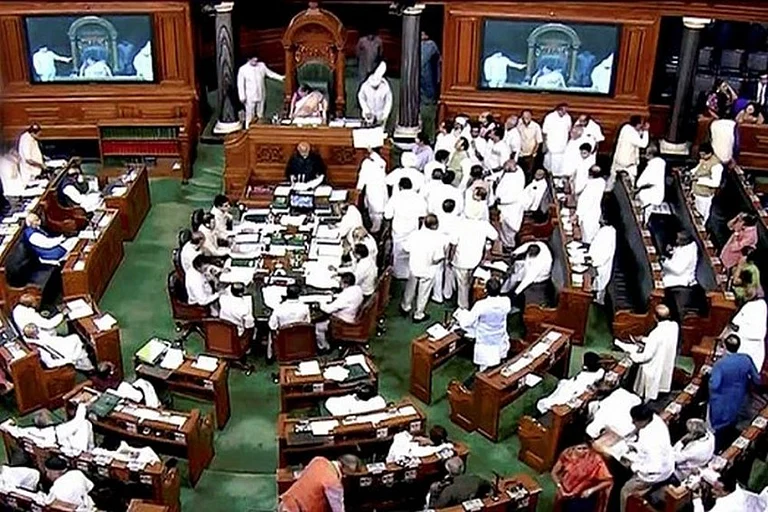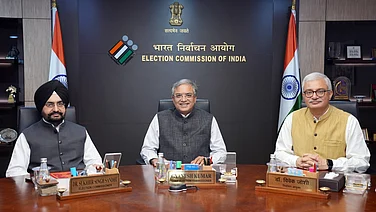Union Railway Minister Ashwini Vaishnaw on Thursday lashed out at Congress and accused it of escalating small incidents on the railway network through is "social media troll army" to create fear among its two crore-plus passengers.
Replying to a debate on the Demand for Grants of Railways in the Lok Sabha, Vaishnaw noted that Railways was the preferred mode of transport for the common man, adding that the Centre has made plans to produce 2,500 more general coaches in the coming months to avoid crowded trains.
He listed a set of steps taken by the government, including the introduction of Amrit Bharat trains -- which have general and sleeper coaches with better facilities -- recruitment calendar to fill in Railways vacancies and catering to middle class families with trains of Vande Bharat-class.
Vaishnaw, in what was called a rare aggression from him, slammed the previous Congress governments for being negligent towards the safety of the railway network by delaying the implementation of automatic train protection system.
He also took a swipe at Leader of Opposition in Lok Sabha, Rahul Gandhi, for making reels with loco pilots.
"Hum reels banane wale log nahi, mehnat karne wale log hai (we don't make reels, we work hard)," Vaishnaw said while highlighting the Central government and the ministry's dedication.
Notably, the grand old party had earlier termed Vaishnaw "reel minister", demanding his resignation in the wake of a series of railway accidents over the past few months.
"Those who are shouting here must be asked in their 58 years of being in power why they were not able to install Automatic Train Protection (ATP), even 1 km. Today, they dare to raise the questions," the Railway Minister said.
Following his remarks, the opposition walked out of the Lok Sabha in protest.
Vaishnaw then went on to list the initiatives taken by the Centre to improve the railway network's safety by eliminating unmanned level crossings, implementation of electronic inter-locking at railway stations for better management of train movements and introduction of Kavach protection system.
The minister also pointed at the increased expenditure allocated for safety-related issues -- Rs 1,08,795 crore -- in comparison to the previous budget's allocation, Rs 98,414 crore.
"When Mamata Banerjee was the railway minister, she used to give the accident numbers that decreased from 0.24 to 0.19 these people used to clap in the House and today when it has decreased from 0.19 to 0.03, they put such blame," Vaishnaw said.
Talking about the loco pilot regulations highlighted by Rahul Gandhi, he said that the average working and rest times for loco pilots were established by a rule in 2005 and the amendments for providing additional facilities were introduced in 2016.
Of the improvements made for the loco pilots are air-conditioning in all 558 running rooms and over 7,000 loco cabins, Vaishnaw noted and compared it with the shortcomings of the previous administration.
Though Vaishnaw said that the Research Designs and Standards Organisation certified Kavach 4.0 this year, he did not mention any specific timeline for the implementation of the automatic train protection system on the entire railways network.
He said three manufacturers of the Kavach system have augmented their production facilities and two new manufacturers are also coming onboard.
"Now, we are in such a situation that we can implement Kavach on a large scale. Tenders are in process for implementing Kavach on 9,000 km. In the next few months, we will start implementing Kavach 4.0 on 10,000 coaches," the minister was quoted as saying by news agency PTI.
Notably, the Lok Sabha approved the Demands for Grants of Railways to the tune of Rs 7.89 lakh crore.








.png?auto=format%2Ccompress&fit=max&format=webp&w=768&dpr=1.0)

















